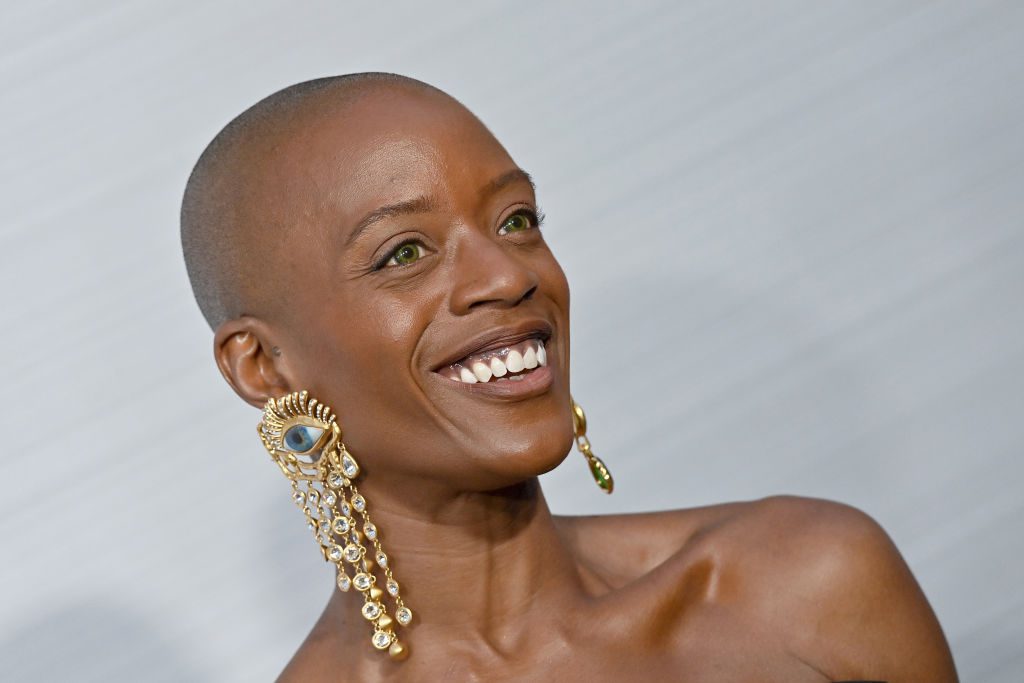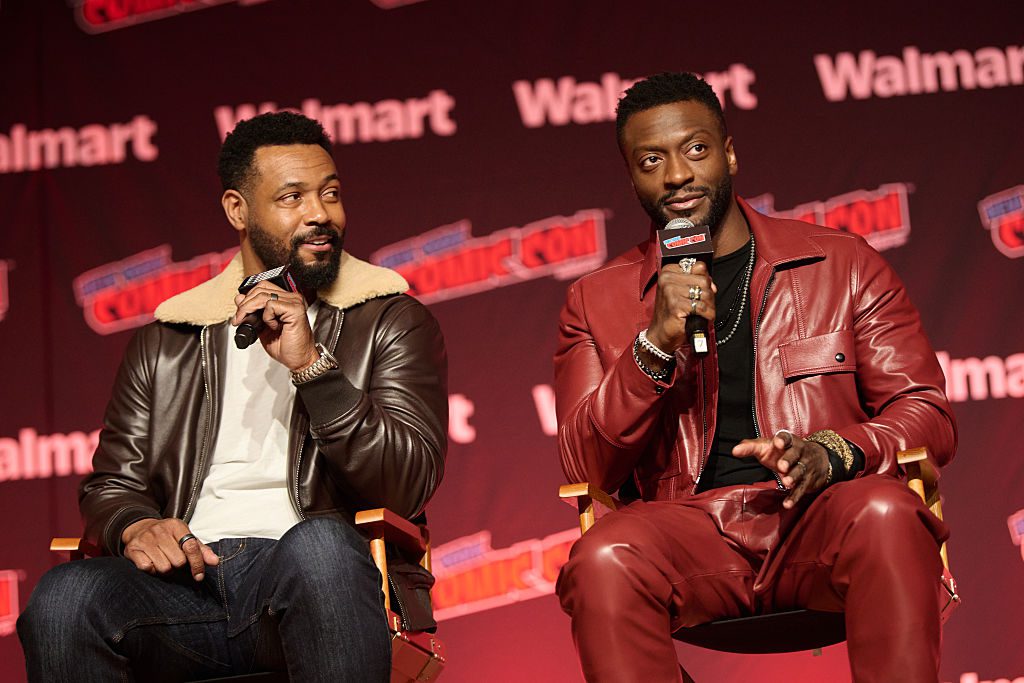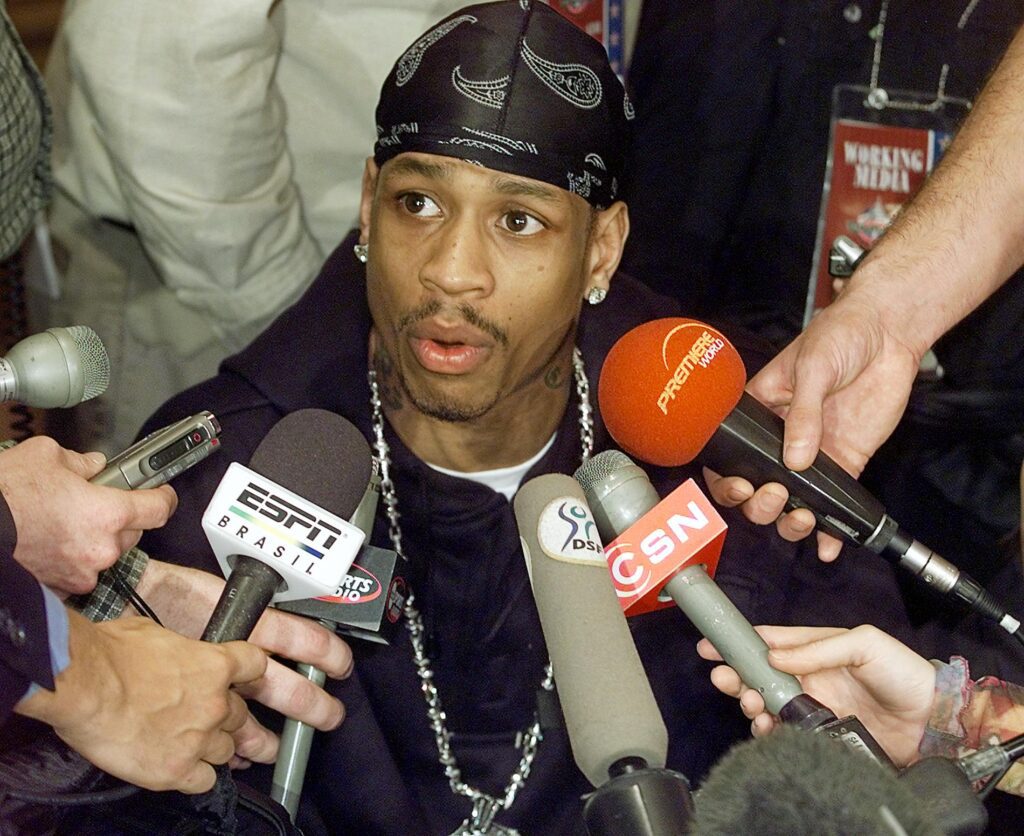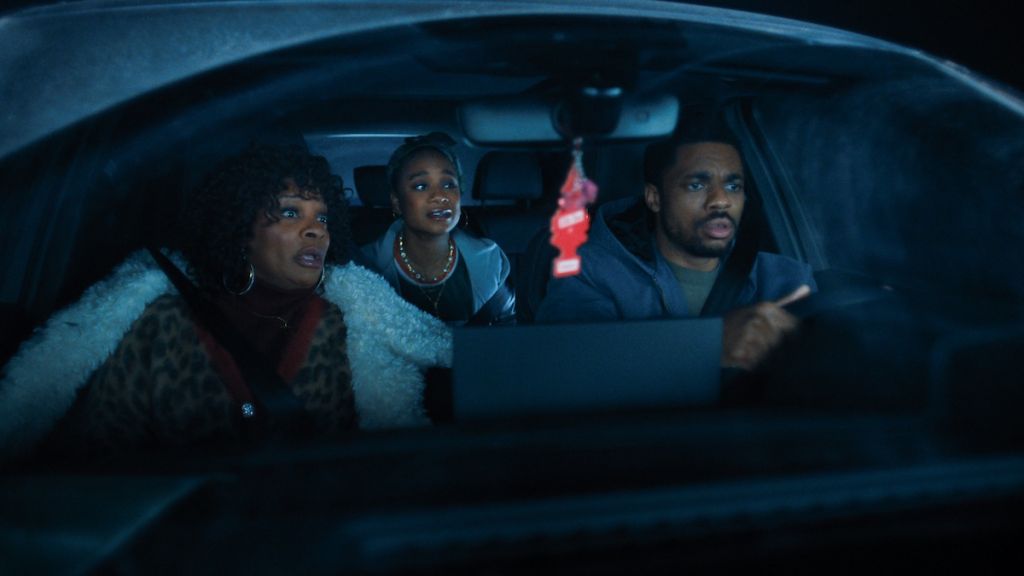This Black Music Month, don’t just acknowledge it, take time to immerse yourself in the rich culture and history behind the music that inspires you.
Source: LaylaBird / Getty
From Gospel and the Blues to Afrobeats and Trap-Soul, Black music exists as more than just music genres; it represents the vital life force of our cultural heritage and a testament to the enduring strength and endless creative potential throughout the Black diaspora.
When James Brown shouted “I’m Black and I’m Proud”, it became a declaration during the Civil Rights Movement. When Public Enemy released “Fight the Power,” it served as a battle cry against the oppression in the ‘80s and ‘90s. Beyoncé’s “Formation” made us bop and celebrate the lineage some of us may or may not even have down in the “Texas bama.” Despite the timeliness of their release, these songs, and countless others, serve as timeless contributions in the pages of our collective history.
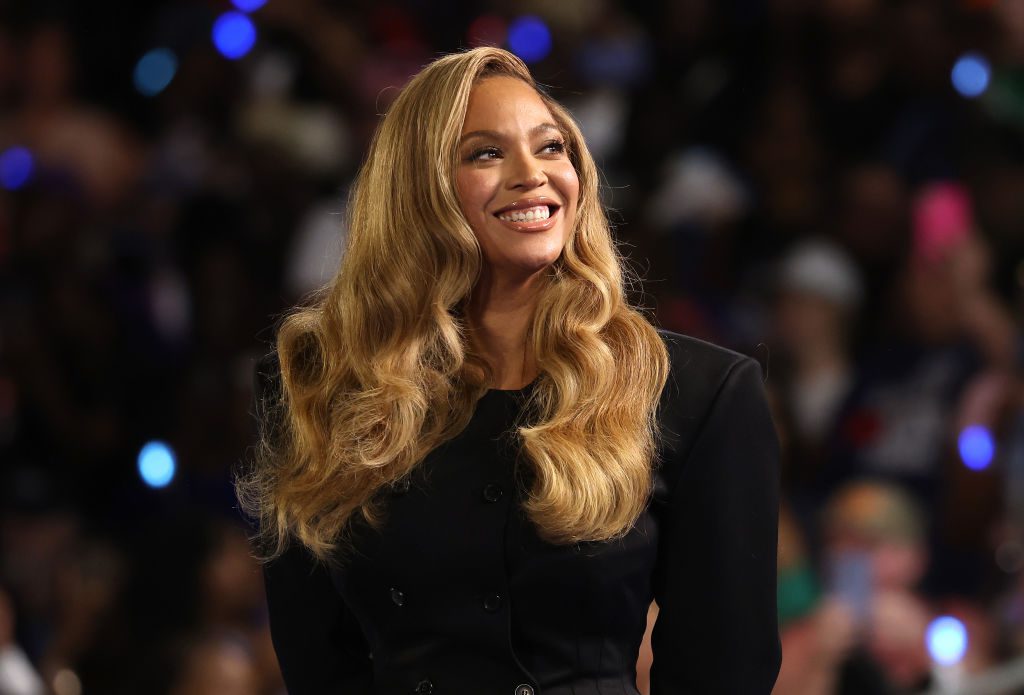
Source: Justin Sullivan / Getty
Cultural expression, resistance, and pride are the core elements that define Black music, and whether you’re celebrating its existence for just a month or every day, as it deserves, Black music remains a living fabric of our Black history, which is inextricably linked to American history. More than just a sound, Black artists have created such profound changes in the worldwide music landscape that are worthy of recognition beyond the month of June.
But, with Black Music Month being on the horizon, music and culture appreciators gain unique value from dedicating time to recognize the enduring influence of Black musicians.
Shopping. Streaming. Experimenting. It’s On Prime.
Foundations Of Black Music
At its core, Black music stands as one of the most influential cultural creators in the world, with the ability to birth and expand on existing music genres.

Source: kali9 / Getty
Deeply rooted in Africa and African-American history, spirituals and songs our enslaved ancestors sang during their days and nights of hard labor formed its foundation. From their pain came music and sounds that would shape American music and the global soundscape as we know it. What evolved would become known as Gospel, Blues, Jazz, Funk, and Soul, each serving as strong expressions of Black identity and creative resilience.
Originating from the Black church, Gospel has served as the spiritual footing for numerous other Black music genres. Through emotional vocals and heart-stirring harmonies, Gospel music has delivered both praise and protest as well as comfort and community to people entrenched in oppression.
Many artists like Aretha Franklin, the certified Queen of Soul, got her musical start in Gospel performing at church services. Through her voice, Franklin successfully shifted Gospel music into Soul music while merging sacred traditions with secular narratives in timeless classics like “Respect” and “Think,” both of which are featured on her 1985 30 Greatest Hits album.
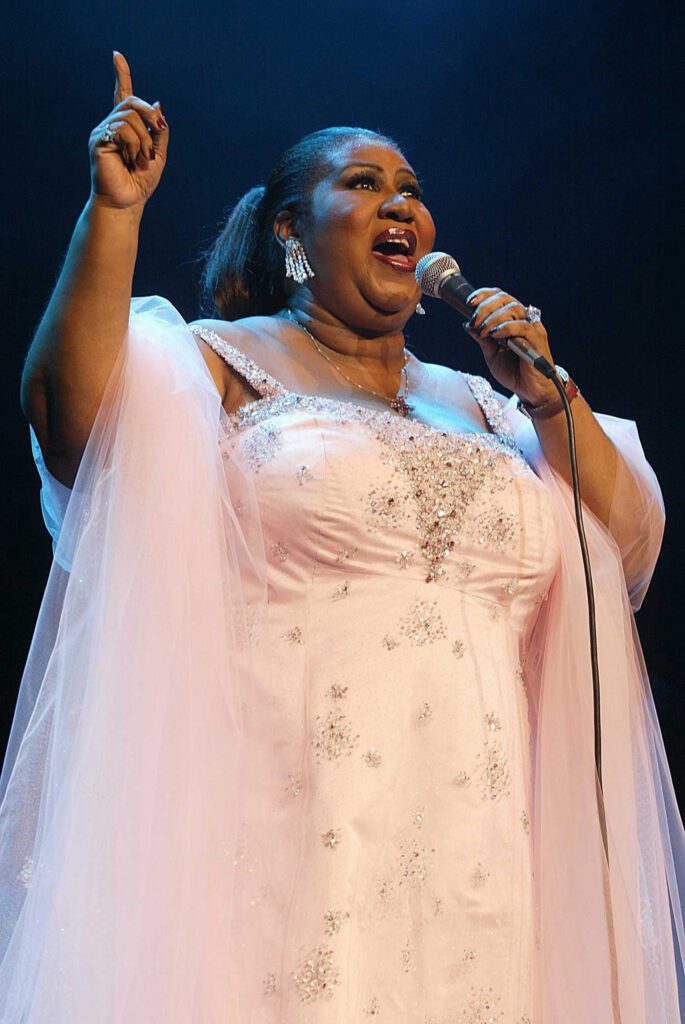
Source: Lorenzo Ciniglio / Getty
Gospel Classics to Listen to:
The Swan Silverstones – “Mary Don’t You Weep”
Sam Cooke – “This Little Light of Mine (Live)”
Aretha Franklin – “Precious Lord” Remastered
Tamala Mann – “Change Me”
The Best Playlists for Gospel Inspiration:
Gospel Classics
Feel-Good Gospel
Fresh Gospel
Gospel Now
Relaxing Gospel
Films to Watch:
The Fighting Temptations
4 Little Girls
Let the Church Say
Rejoice and Shout
The Blues emerged in the rural South in the late 19th century, and played a pivotal role in the formation of Rock ‘n Roll and American pop music as we know it.
The raw and deeply emotional music form gave voice to everyday struggles and the joys of life, much like the car scene in Sinners when Delroy Lindo’s character hums out the pain of losing his late friend. Blues paved the way for legends like Ray Charles, who earned his nickname “The Genius” through his captivating Blues-Gospel-Jazz fusion. This sound would become the foundation for Rhythm & Blues and birth timeless songs like “Hit the Road Jack” and “Georgia on My Mind,” essential elements of what we know today as American pop music.
Blues Essentials You Should Listen to:
Big Bill Broonzy – “Get Back”
Buddy Guy – “Stone Crazy”
B.B. King – “The Thrill is Gone”
Muddy Waters – “The Blues Had a Baby and They Named the Baby Rock ‘n’ Roll
Bessie Smith – “Nobody Knows You When You’re Down and Out”
The Best Playlists to Tap Into the Blues:
Classic Blues
REDISCOVER Classic Blues
Blues Now
Films to Watch:
Crossroads
Ray
Mo’ Betta Blues
Lady Sings the Blues
Through jazz, Black musicians elevated the sound with complex musical structures that turned the performance into a musical dialogue.
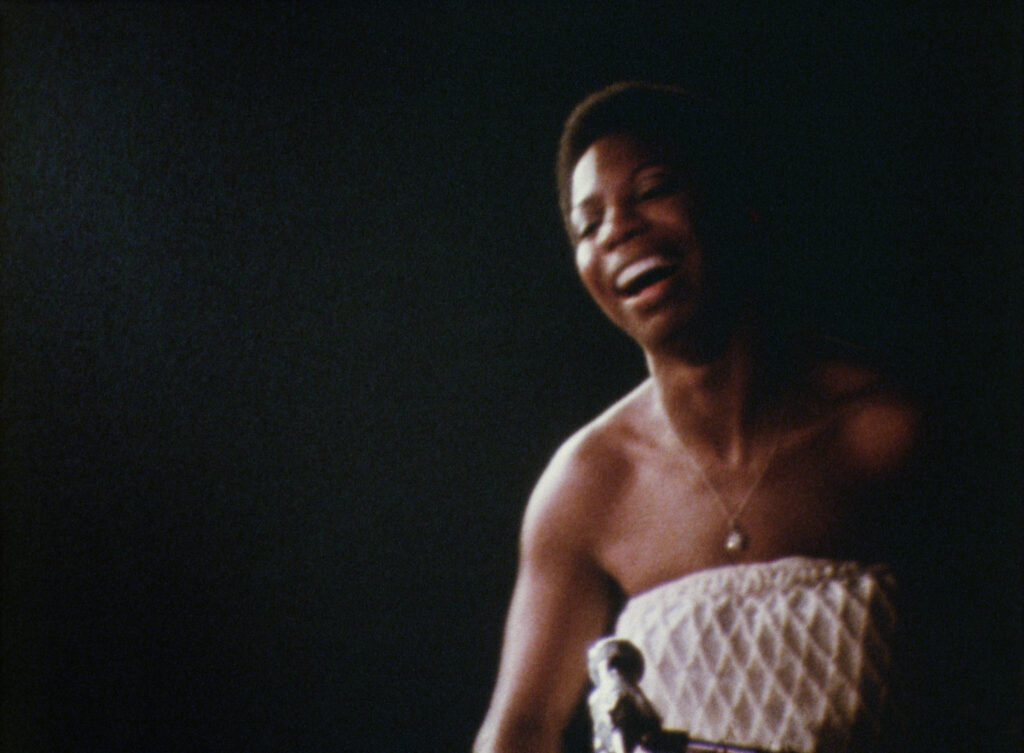
Source: Photo courtesy of Peter Rodis/Netflix
The art form helped give voice to the African American experience in the early 20th century, with artists like Cab Calloway and Louis Armstrong using their music to reflect the hardships and richness of Black life. By the 1960s, Nina Simone transformed the genre through her musical fusion of Jazz, Classical, Blues, and Folk elements, earning her the title of the “High Priestess of Soul.” With sultry jazzy tracks like ”Feeling Good” and “I Put A Spell On You” to deeply personal and politically charged statement songs like “Mississippi Goddam,” “Strange Fruit,” and “To Be Young, Gifted and Black,” Simone helped to transcend Jazz through time. Her presence was felt at the 1969 Harlem Cultural Festival, as featured in the documentary film “Summer of Soul.” The legacy lives on through today’s jazz artists.
Timeless Jazz to Vibe to:
Louis Armstrong – La vie en rose
Sade – Kiss of Life
Ella Fitzgerald & Louis Armstrong – They Can’t Take That Away From Me
Frank Sinatra & Count Basie – FlyMe to the Moon (In Other Words)
Esperanza Spalding – I Know You Know
The Jazziest Playlists for Your Ears:
Jazz Classics
REDISCOVER Nina Simone
Ultimate Jazz
REDISCOVER John Coltrane
Films to Watch:
Bird
New Orleans
Summer of Soul
Billie
The 1960s and 70s brought timeless soul that served as a powerful expression of rhythm, rebellion, and groove.
Funk music focused on beats that invigorated the body and encouraged movement. Through its lyrics, Soul music expressed deep emotions that addressed the entire spectrum of Black life experiences. “Godfather of Soul” James Brown was a dominant force with his gritty soulful vocals and electric beats that made hands clap and feet stomp. So when he belted out “Get Up, Get On Up,” you followed suit.
At the same time, Motown rose as an instrumental force in the development of soul music with its combination of gospel and R&B. Founded by Berry Gordy in Detroit in 1959, Motown would go on to launch the careers of Stevie Wonder, Diana Ross, Marvin Gaye, and The Temptations. Motown was pivotal in Black music going mainstream through its enduring Soul classics like Wonder’s “Songs In the Key of Life” and Marvin Gaye and Tammi Terrell’s “United.” Prince emerged as a musical genius who would eventually merge Funk with Rock, Soul, and Pop to create his distinctive musical style. Through his electrifying stage shows and unfiltered artistic expression, he broke musical rules to become a creative freedom icon for future artists.
Funk-Soul Songs You Should Play:
Stevie Wonder – Superstition
Gladys Knight & The Pips – Midnight Train to Georgia
Rufus ft. Chaka Khan – Tell Me Something Good
Switch – There’ll Never Be
Harold Melvin & The Blue Notes ft. Teddy Pendergrass – I Miss You
The Most Soulful Funkdafied Playlists Worth Vibing To:
Funky Soul Classics
REDISCOVER James Brown
REDISCOVER The 60s: MoTown
Mellow 70s Gold: Classic Soul
REDISCOVER The 80s: R&B
Films to Watch:
Summer of Soul
The Five Heartbeats
The Temptations
Why Do Fools Fall In Love
What’s Love Got to Do with It
The Evolution: Classic Hip-Hop & R&B Takeover
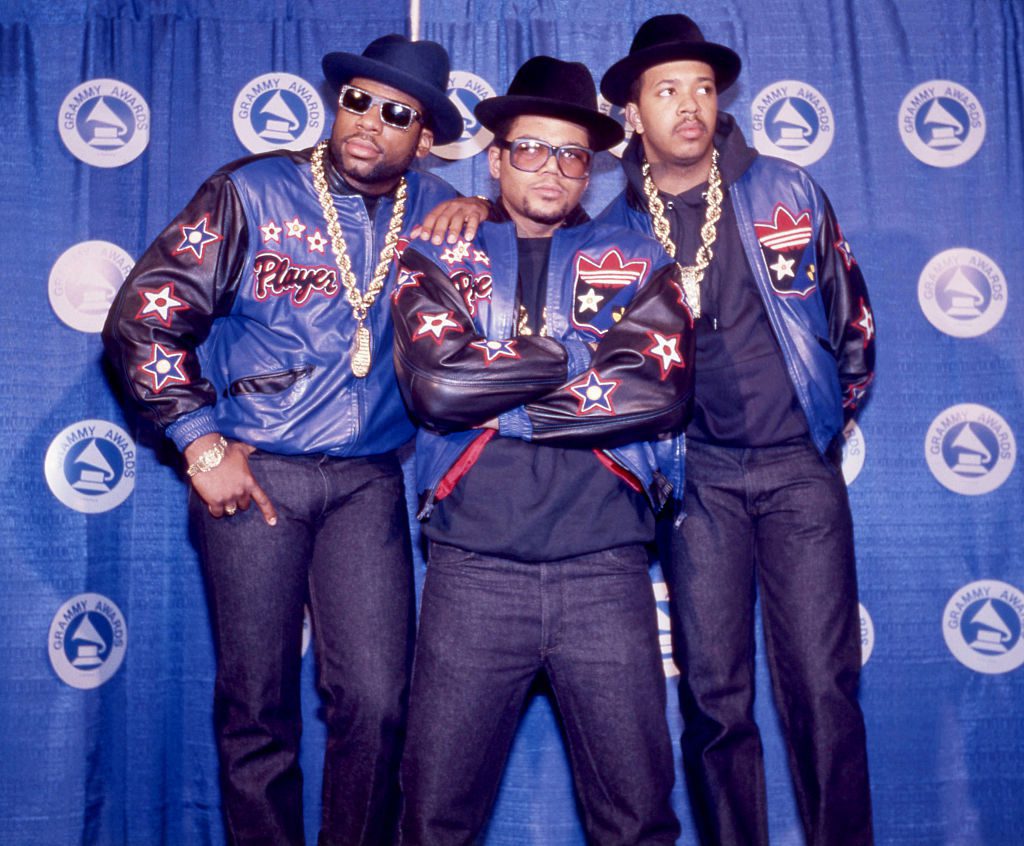
Source: TPLP / Getty
The evolution of Black music continued as Gospel, Soul, Funk, and Jazz blended into a vibrant new sound that laid the foundation for modern R&B and the birth of Hip-Hop. The resilience, cultural expression, and undeniable talent carried into the late 20th century, where block parties in the Bronx sparked a musical revolution. DJs (disc jockeys) would use old vinyl records of legends like James Brown and Parliament Funkadelic to form a dance break that allowed lyricists, or Emcees, to recite a rhyming pattern of words, known as rap. Together, the DJ, Emcee, Breakdancers, along with graffiti art and knowledge of its origins, serve as the five core elements of hip-hop.
Since its inception, hip-hop has given voice to new forms of storytelling, resistance, and celebration. From the gritty truths of Grandmaster Flash and the Furious Five’s “The Message” all the way to the flashy bravado of Lil Wayne’s “A Milli,” hip-hop is and always will be the voice of the people. By the 1990s, the genre had exploded into the mainstream, with platinum-selling acts like MC Hammer, whose “Please, Hammer, Don’t Hurt ‘Em” went diamond, proving hip-hop was here to stay.
Throwback Hip-Hop You Should Listen to:
Special Ed – I Got It Made
Run-DMC – Peter Piper
J.J. Fad – Supersonic
Big Daddy Kane – Ain’t No Half-Steppin
Roxanne Shante – Roxanne’s Revenge
Tap Into the Origins of Hip-Hop with These Playlists:
REDISCOVER The 80s: Hip-Hop
Class of ‘88
REDISCOVER Public Enemy
REDISCOVER LL Cool J
Classic Hip-Hop Films to Watch:
Krush Groove
Breakin’
Wild Style
Beat Street
The evolved lyricism and flow of rappers from the early ‘90s marked what many call the “golden era” of hip-hop, a time defined by elevated rhyme schemes, innovative beats, and unfiltered artistic expression. Tupac Shakur emerged as a revolutionary poet, turning pain, passion, and purpose into powerful anthems like “Keep Ya Head Up” that moved the world.
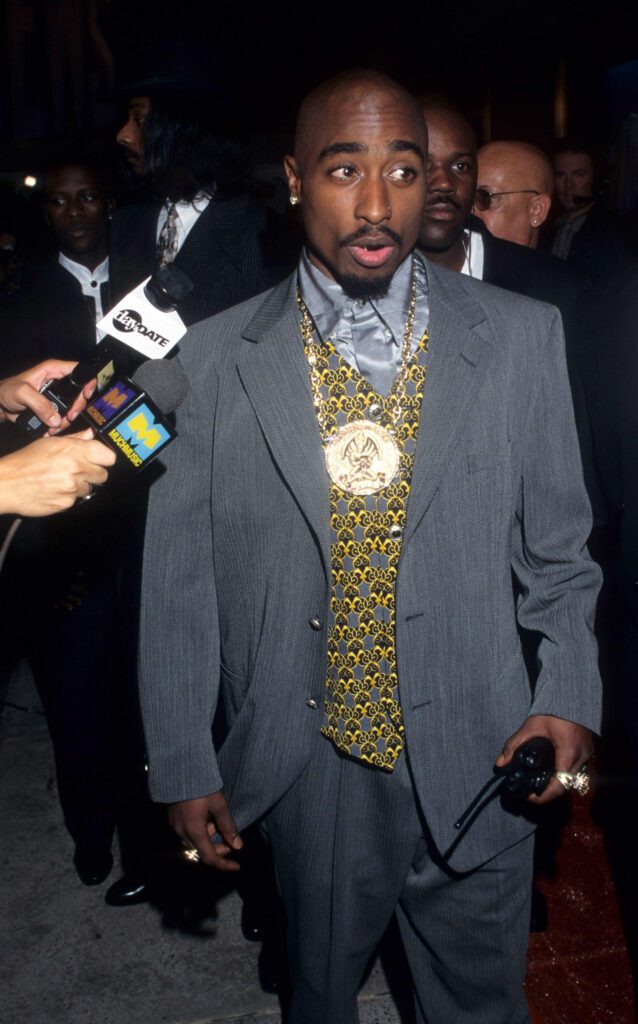
Source: Kevin Mazur / Getty
The Notorious B.I.G. reigned with how he elevated hip-hop with his effortless flow, vivid storytelling, and larger-than-life presence, redefining what a rap icon could be. Outkast brought a bold new energy that fused Southern soul with fearless wordplay on tracks like “B.O.B (Bombs Over Baghdad)” and “Ms. Jackson,” shattering musical molds and stereotypes on what a rapper should look and sound like. Together, Tupac, Biggie, Outkast, and a generation of visionaries didn’t just shape hip-hop — they turned it into a global force of culture, resilience, and celebration.
Golden Era Hip-Hop Tracks to Play:
Wu-Tang – C.R.E.A.M.
Nas – Represent
Da Brat – Funkdafied
Dr. Dre & Snoop Dogg – Nuthin’ But A “G” Thang
Queen Latifah – Ladies First
Golden Era Hip-Hop Playlists:
Hip-Hop Classics
Women of Hip-Hop
REDISCOVER East Coast Hip-Hop
REDISCOVER The 90s: Hip-Hop
REDISCOVER Salt-n-Pepa
90s Era Hip-Hop Films to Watch:
House Party
Juice
CB4
Biggie & Tupac
Notorious
Mary J. Blige earned her crown as the “Queen of Hip-Hop Soul” by blending the deep emotion of the “Queen of Soul” Aretha Franklin with the grit and edge of hip-hop, creating a new sound heard on hits like “Real Love” and “I’m Goin’ Down.” Lauryn Hill pushed the fusion even further, sweeping the 1999 Grammys with The Miseducation of Lauryn Hill, a timeless album that perfectly bridged hip-hop and soul. At the same time, Missy Elliott was revolutionizing the sound and look of hip-hop with her futuristic style and fearless combination of hip-hop, funk, and R&B.
Usher and Beyonce’s combination of soulful vocals and energetic dance breaks harkened back to the greats—Michael and Janet Jackson, Tina Turner, and Diana Ross, to name a few—bringing a modern flair while ensuring that the legacy of Soul, rebellion, and cultural triumph continued to thrive in a new era. Meanwhile, the art of sampling—deeply woven into the fabric of hip-hop and R&B—seamlessly crossed over into pop, bridging generations of sound. From James Brown’s legendary breakbeats to Rich Boy’s “Throw Some D’s” and Kendrick and SZA’s “30 for 30,” both of which revived Switch’s 1979 soul anthem “I Call Your Name,” sampling has been essential in giving old-school vibes a fresh, powerful pulse.
Songs You Should Listen to:
Lauryn Hill – Doo Wop (That Thing)
Missy Elliot – She’s A B*tch
Usher – U Don’t Have to Call
Beyonce – Crazy In Love
Mystikal – Danger
Nicki Minaj – Itty Bitty Piggy
Playlists Worth Vibing to:
90s – 2000s Hip-Hop and R&B
REDISCOVER The 90s: R&B
REDISCOVER Destiny’s Child
REDISCOVER Midwest Hip-Hop
Produced By Timbaland
2000s Nostalgia Films to Watch:
Carmen: A Hip-Hopera
8 Mile
Brown Sugar
Save the Last Dance
You Got Served
As the sound evolved, so did the forms of media to engage with it. By the late ‘90s and early 2000s, shows were introduced to honor and celebrate Black artists who were often overlooked by mainstream media. Shows like BET’s 106 & Park amplified the culture by celebrating and elevating Black artists to national fame, much like the legendary Apollo Theater did with its iconic amateur nights, which gave rise to the beloved Showtime at the Apollo series. 106th and Park saw teens and young adults tune in daily to watch the top music videos and see their favorite artists take the stage on a platform that seamlessly blended music with fashion, dance, and culture. Meanwhile, the Source Awards gave hip-hop artists a major stage to be recognized and honored in an industry where the genre was often underrepresented.
2024 marked the 50th anniversary of hip-hop and highlighted the genre’s profound global influence beyond music. Together, Hip-hop and R&B, born from the legacies of earlier Black musical forms, continue to carry forward the innovation, authenticity, and spirit of Black culture.
The Now: Modern Icons & Genre Benders
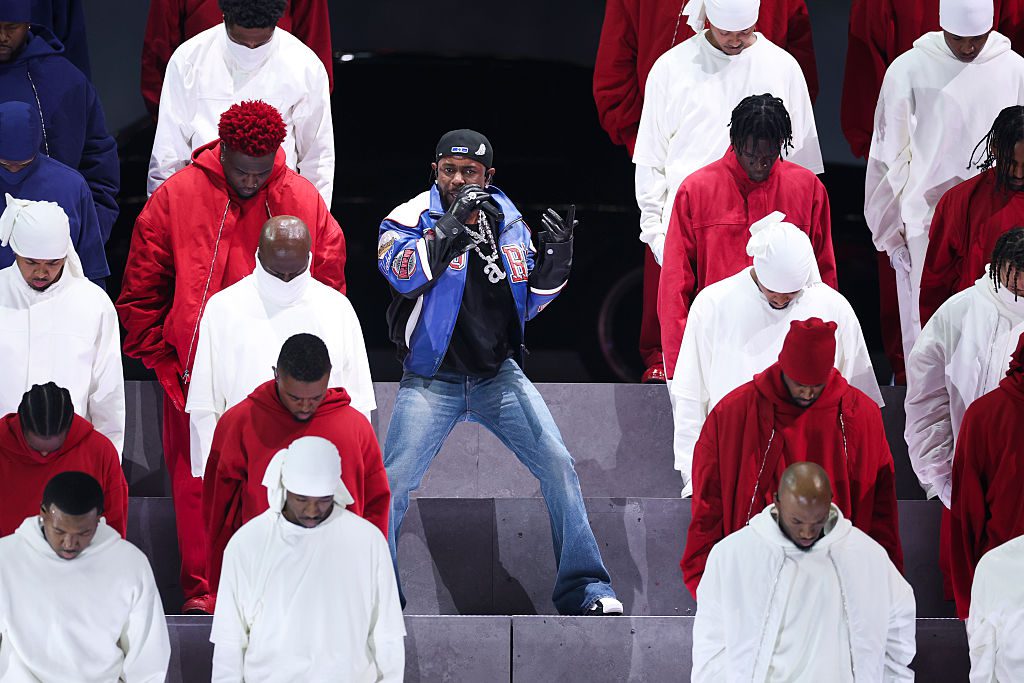
Source: Logan Bowles / Getty
The current soundscape sees Black music shattering barriers. Transforming what was once considered “Urban Contemporary” to be now seen as just popular music. The rise of global Afrobeats stars like Burna Boy and Tems showcases the vibrant fusion of the Black diaspora into infectious rhythms that echo back to the Motherland. Combinations of African and Caribbean rhythms with contemporary pop, R&B, and hip-hop have propelled Afrobeats to the top of the charts, further driving the dynamic evolution of Black music. Crossover artists like Doja Cat continue to bend genres, blending hip-hop, R&B, and pop into fresh, boundary-pushing sounds that dominate the Billboard charts. All the while, artists like Kendrick Lamar continue to release music that serves to affirm and celebrate the beauty and brilliance of Black identity.
Artists like Kendrick Lamar have taken hip-hop’s poetic and political elements championed by Tupac Shakur to new heights, crafting albums like To Pimp a Butterfly that blend elements of jazz, funk, and hip-hop to narrate the Black experience. And when he declared that they “Not Like Us,” the whole world caught the vibe and embraced the anthem’s deeper message of pride, resilience, and celebration for Black Americans.
Modern Songs of the Diaspora:
Burna Boy – Last Last
Rema – Baby (Is It A Crime)
Faith Callender – Talk About This
Fireboy DML, 21 Savage, Blxst – Peru (Remix)
SPINALL, DJ Shake & Ayanna – Power (Remember Who You Are)
MOLIY, SIlent Addy, Skillibeng & Shenseea – Shake It to the Max (Remix)
Playlists That Take You Further Into the Diaspora:
Dancehall Chune
Soca Lyfe
Enjoyment
Hits Reggaetón
Elite Rap
Films and Series to Watch:
Coming 2 America
Dope
Gangs of Lagos
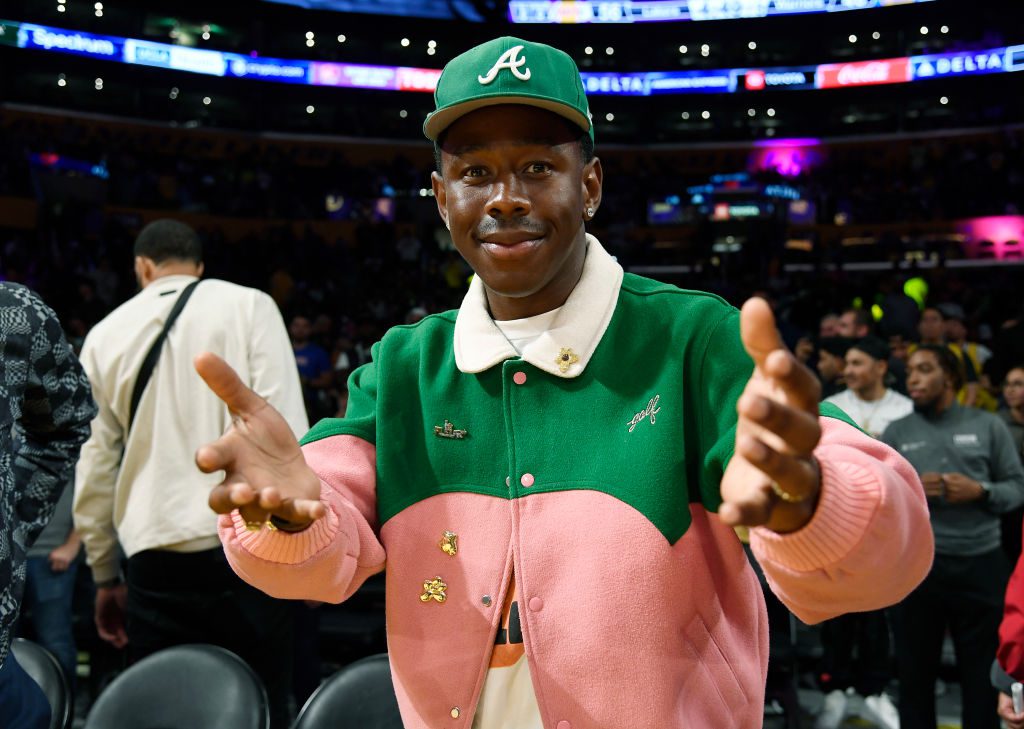
Source: Kevork Djansezian / Getty
Adding to the evolution is the genre-bending Tyler, The Creator, who moves between rap, neo-soul, and alternative rock to create a new sound that maintains the emotional essence of Black culture. Megan Thee Stallion is at the forefront of the rise of the female emcee. Her fierce fusion of New Orleans Bounce and modern Southern rap has birthed anthems of empowerment and unapologetic joy to the mainstream. From “WAP” to “Savage,” Megan successfully charts records that champion womanhood, sexuality, and ownership of self without the need of approval from a man, picking up the torch from pioneers like Queen Latifah, Salt-N-Pepa, and MC Lyte
Songs You Should Listen To:
Tyler, The Creator ft GloRilla, Sexy Redd – Sticky
Lil Uzi Vert – Just Wanna Rock
Drake ft. Wizkid & Kyla – One Dance
Megan Thee Stallion – Savage
Latto ft. Cardi B – Put It On Da Floor Again
Playlists Worth Vibing to:
Thee Hot Girl Summer Tour Playlist
Ladies First
Rap Rotation
Films/Series to Watch:
RAP SH!T
Megan Thee Stallion: In Her Words
Kendrick Lamar’s The Pop Out: Ken & Friend
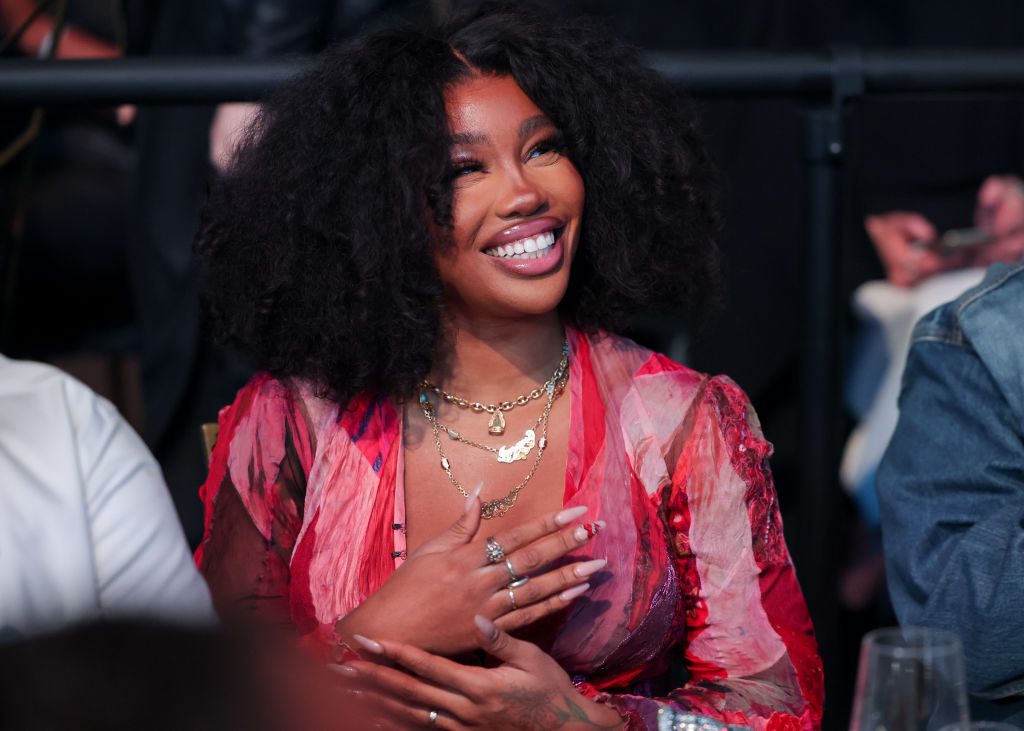
Source: Christopher Polk / Getty
The modernization of R&B sees acts like SZA showcase the genre’s essence of soulful vulnerability in new sub-genres dubbed “Trap-Soul” and “Alt-R&B.” Combining her airy vocals with bass-heavy beats to lyrics about love, heartbreak, and individuality, SZA has produced a raw and ethereal new sound reminiscent of pioneering predecessors like Nina Simone, Sade, and Toni Braxton. Driving the progression of R&B is Janelle Monáe, who pushes boundaries with futuristic takes on neo-soul and funk that blend political commentary with genre-defying sonic landscapes best heard on tracks like “Pynk” and “Electric Lady.”
Songs You Should Listen to:
Miguel – R.A.N.
Solange – Stay Flo
Jhené Aiko – While We’re Young
Sabrina Claudio – Wanna Know
KAMAUU ft Ade Oasis – MANGO
Trap-Soul Playlists Worth Vibing to:
REDISCOVER SZA
Fresh R&B
The Feels
Coffee Shop R&B
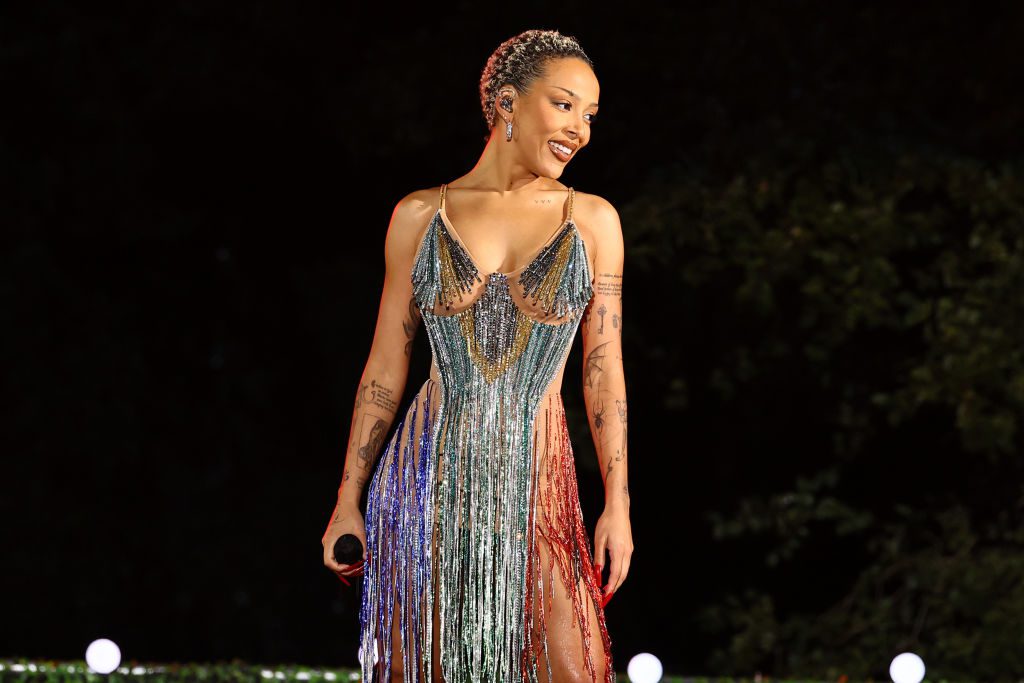
Source: Theo Wargo / Getty
The evolution shows how Black artists have maintained their musical traditions through their creation of new genres such as Jersey Club, Trap-Soul, Bounce, and Alt-R&B. Doja Cat demonstrates this adaptability by moving between pop, rap, and R&B while preserving the fundamental elements of Black musical heritage. Doja Cat adds to the Black women who are leading the way alongside SZA, whose SOS album became the longest-running No. 1 album on the Top R&B/Hip-Hop Albums chart at 18 weeks and surpassed Michael Jackson’s Thriller for the most weeks in the Billboard 200 Top 10. The feat amplified how Black women are leading the charts by creating music that defies traditional genre categories through their fusion of Black musical elements.
Songs You Should Listen To:
Teyana Taylor ft. Missy Elliot & Future – Boomin
Ro James – Be Mine
Bryson Tiller – Right My Wrongs
Victoria Monet – On My Mama
Ella Mai – This Is
WANMOR – Mine
New-Age Playlists Worth Vibing to:
REDISCOVER Doja Cat
R&B Rotation
Luv & Hip-Hop
The evolution of Black music is powerful and undeniable, and the growth of social media aids in making sure this rich history is not forgotten. The modern icons of today represent a generation that refuses to be boxed into one sound, instead creating dynamic blends that are reshaping the global music landscape. From Kendrick Lamar and Tyler, The Creator to Doja Cat and Tems, they are introducing the rich heritage and history of Black music to new generations while leading its current transformation.
The Future – What’s Next?
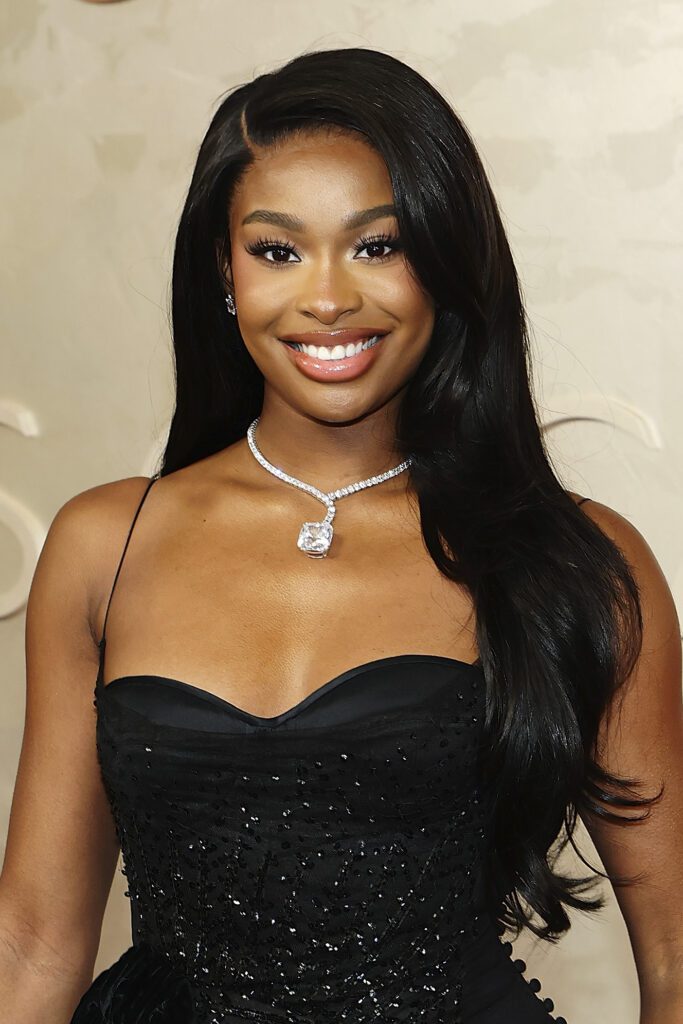
Source: Arturo Holmes / Getty
With deep cultural roots as its backbone, the future of Black music is poised to continue spearheading transformative shifts in mainstream pop culture. Led by a new wave of emerging artists and cutting-edge technology, consumers are witnessing an evolution in how music is produced, discovered, and experienced. As the industry moves toward a more genre-fluid sound, new artists are finding fresh ways to craft their own distinct voices within the constantly evolving world of Black music. Artists to watch, like Ayra Starr, Blxst, Coco Jones, and Flo Milli, are among an elite crew of newcomers showcasing the current diversity of Black music. From rising Afrobeats sensation Arya Starr to Chlöe’s sultry blend of R&B, pop, and soul, these artists are showing us how the cross-generational global sound of today’s Black creators is taking us into the next era of musical expression.
Songs You Should Listen to:
Ayra Starr – All The Love
BigXthaPlug – The Largest
Chlöe – Have Mercy
Blxst – Every Good Girl
Tyla – PUSH 2 START
Playlists to Vibe Out to:
Diaspora
Detty December
Breakthrough Hip-Hop
Buttah
Cuffed Up
Video to Watch:
Arya Starr Dare to Dream
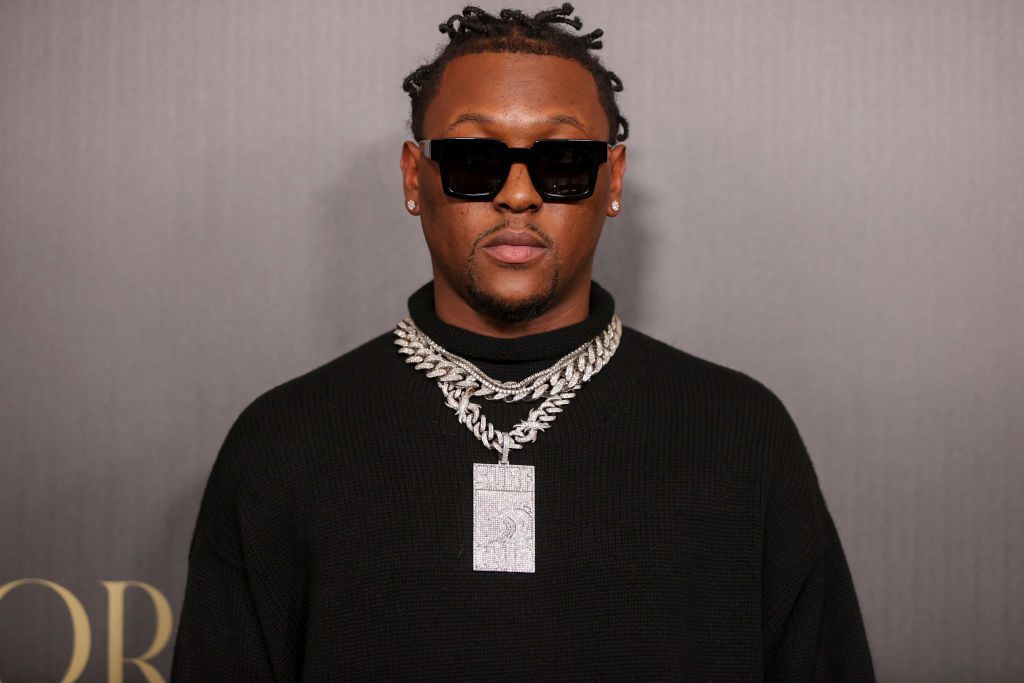
Source: Variety / Getty
The success of producers Hit-Boy, ATL Jacob, and Tayla Parx demonstrates the increasing influence of Black creatives behind the scenes. Their production techniques push the boundaries of contemporary R&B, rap, and hip-hop by incorporating elements of the African diaspora into hit songs that resonate with global audiences. From Hit-Boy’s diamond-certified production on Jay-Z and Kanye West’s “Ni**as in Paris” to Tayla Parx and Victoria Monét co-writing Ariana Grande’s chart-topping anthem “Thank U, Next,” these successes showcase the undeniable influence of Black creatives across genres—even when they’re not front and center. All the while, Trap-soul blends from artists like SZA and Brent Faiyaz, paired with the bold, playful styles of Baby Tate and Flo Milli, continue to attract new listeners and redefine what mainstream can sound like.
Songs You Should Listen To:
Brent Faiyaz – ALL MINE
Baby Tate ft. Flo Milli – I Am
Kaliii ft. ATL Jacob – MMM MMM
Gunna – One of Wun
Saweetie – Richtivities
The Most Soulful Funkdafied Playlists Worth Vibing To:
Produced by Hit-Boy
Produced by Mike WiLL Made It
Written By Tayla Parx
Written by Victoria Monét
As technology advances, so too does the sound and the ways of creating it. The AI boom has shifted the entertainment industry entirely and transformed Black music as AI tools revolutionize the way beats are made, melodies are crafted, and even how lyrics are written. The transition has made music production more accessible to independent creators who no longer need an expensive recording studio or advanced equipment to produce high-quality tracks. Through streaming platforms, Black creators now have access to powerful tools that connect them directly with their audience. Today’s artists have the ability to use platforms to release music, promote their unique sound, and receive real-time feedback, granting them unprecedented access to global listenership.
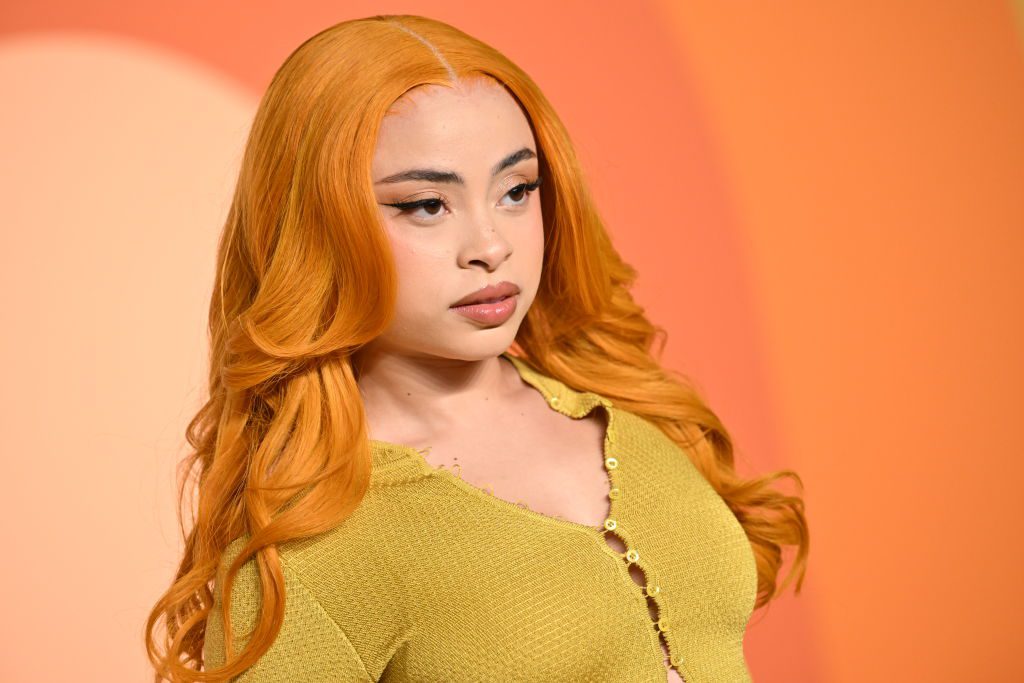
Source: Lionel Hahn / Getty
TikTok’s emergence as a viral platform has transformed the way music achieves mainstream success. Sounds of today and yesterday find new success all through someone creating a dance or viral challenge that draws in global followers. TikTok now serves as a vital platform to discover new Black artists and contemporary cultural music trends due to its ability to make songs worldwide famous overnight. The rapid spread of music through viral challenges and dances has helped to propel artists like Flo Milli, Coco Jones, and KenTheMan into the spotlight through a process that used to require years to reach audiences. The combination of streaming services’ global music accessibility with new exposure methods through social media has democratized mainstream music in a way that allows more artists than ever to share their work with the world directly.
Songs You Should Listen To:
Ice Spice ft. Nicki Minaj – Princess Diana
Coco Jones – ICU
Kaliii & KenTheMan – I Got Questions
The Future of Black Music Playlists to Play:
Made in the South
Fresh Hip-Hop
Baddies
Ampiano Now
Video to Watch:
Flo Milli & Mo Heart
The future of Black music is bright as creative expression, technology, and global connection continue its culture-shifting progression. As rising stars like Ayra Starr and Chlöe, alongside visionary producers like DJ Mustard and Metro Boomin, continue pushing sonic boundaries and propelling the culture forward, Black music will remain a driving force in shaping not only the music industry but the broader cultural landscape. With AI-powered production, viral moments on TikTok, and the democratizing force of streaming platforms, the music industry is entering a new era—one where Black artists and creators remain at the forefront, shaping not just sound but the future of culture itself.
If you’ve made it through this entire guide and still have names in mind that deserve a shoutout, that just proves how rich and far-reaching Black music truly is.

Source: Deagreez / Getty
Its influence runs deep, touching lives around the globe for generations. Born from resilience, fueled by boundless creativity, and anchored in soul, Black music continues to shape culture, sound, and identity. Let Black Music Month be a powerful reminder of its impact and the personal ways it has helped shape your world.



